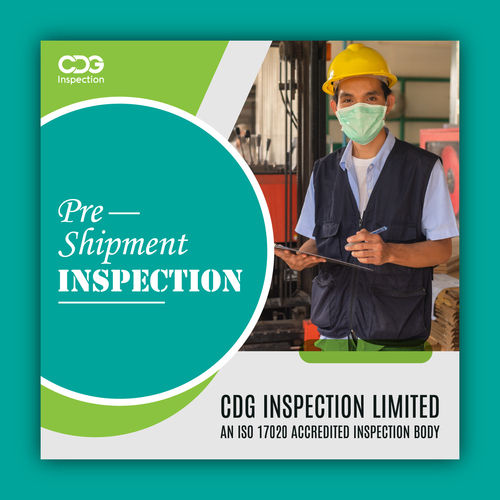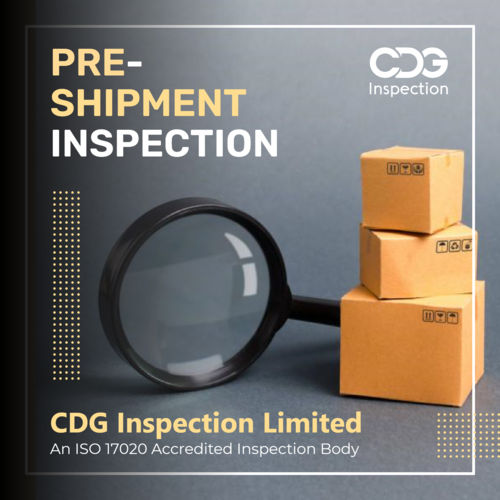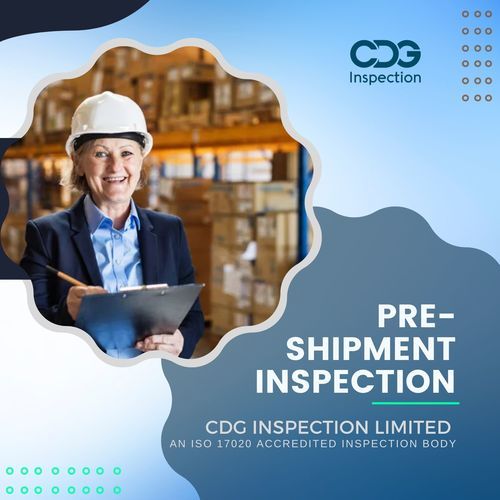Pre-Shipment Inspection in Gurgaon
Product Details:
X
Product Description
CIL Provides Accredited Pre-Shipment Inspection Services in Gurgaon. Pre shipment inspections (PSI) is defined as the certification of the value, quality, and or identity of traded goods done in the exporting country by specialized agencies or firms on behalf of the importing country. Traditionally used as a means to prevent over or under invoicing, it is now being used as a security measure. Pre shipment inspections are required when mandated by the government of the importing country. Governments assert that pre shipment inspections ensure that the price charged by the exporter reflects the true value of the goods, prevent substandard goods from entering their country, and mitigate attempts to avoid the payment of customs duties. Pre shipment inspections are typically performed by contracted private organizations. In most cases, importers can select from a short list of these organizations when planning inspections. However, sometimes one firm is appointed to carry out inspections for a given country on an exclusive bases. Inspection costs are generally paid either by the importer or by the government of the importing country. However in some cases, the inspection agency may invoice the seller in the event of supplementary inspection visits. The costs associated with presenting the goods for inspection (such as unpacking, handling, testing, sampling, repackaging)are the responsibility of the seller. Although the importer is responsible for arranging the pre shipment inspection, the exporter must make the goods available for inspection in the country of origin. Delays in the process can lead to problems with the shipment and or increased costs for the exporter. Therefore, it is in the best interest of exporters to work with their freight forwarder to ensure that all information is accurate and is provided to the inspection company immediately after notification of the requested inspection. Requirements for pre shipment inspections are sometimes spelled out in letters of credit or other documents. Generally, the inspection company starts the inspection process once it receives a copy of the inspection order from the importing country. An inspection order states the value of goods, the name and address of the importer and the exporter, the country of supply, and the importers declaration of customs code. The inspection company then contacts the exporter to arrange an inspection site and time. The steps of the Pre shipment inspection process are usually as follows, The importer opens an import document or license, The importer informs the inspection service in the country of import of a pending shipment, and either pays for the inspection up front or pays a percentage based on the value of the commercial invoice, depending on the terms of the importing countries inspection contract. An inspection order is forwarded to the inspection company office in the country of export. The inspection company contacts the exporter to arrange date, time, and location for inspection. It also requests all required shipping documents and price information (invoices). The exporter must provide these documents in a timely manner to avoid demurrage or other penalties. The inspection is performed. If no discrepancies are noted during the inspection, and once all final documents are received from the importer and exporter, a Clean Report of Findings is issued confirming the shipments value, customs classification, and clearance. The final documents required for issuance of the Clean Report of Findings vary by contract but most often include a final invoice and bill of lading or airwaybill. The goods are shipped to the importing country. The importer uses the inspection report to get the imported goods released from customs. If goods reach the border of the importing country without inspection, they usually have to be re exported to a nearby country for inspection prior to re entry or are subject to heavy penalties.
Enter Buying Requirement Details






